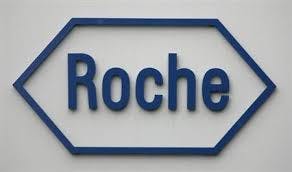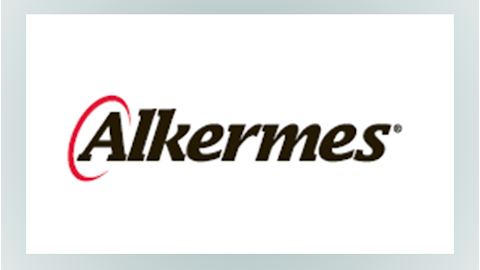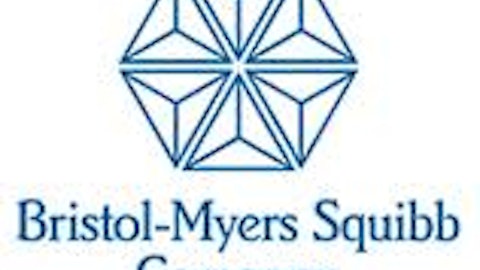Over the past several years, monoclonal antibodies have revolutionized cancer treatments. Monoclonal antibodies are laboratory-produced molecules that mimic naturally produced antibodies, forming the foundation of cutting-edge oncology treatments, such as antibody drug conjugates (ADCs), biologics, and immunotherapy, which all aim to reduce or eliminate the use of traditional chemotherapy.
Monoclonal antibodies — which are administered intravenously — have a variety of applications, including cancer cell marking, growth signal blocking, the delivery of chemotherapy toxins, and the reduction of new blood vessel growth. Understanding how these treatments work is quickly becoming an indispensable part of biotech investing, and investors should clearly understand how monoclonal antibodies are affecting the industry.
Approved monoclonal antibody treatments
Roche Holding Ltd. (ADR) (OTCBB:RHHBY), the largest oncology company in the world, currently has the largest portfolio of approved monoclonal antibody treatments. Roche Holding Ltd. (ADR) (OTCBB:RHHBY)’s Avastin, which generated $6.3 billion in annual sales last year, is approved for the treatment of brain, colon, kidney and lung cancers. Avastin intercepts the vascular endothelial growth factor, or VEGF, growth signal, which is sent out by cancer cells to attract new blood vessels to facilitate growth. By intercepting VEGF signals, Avastin inhibits new blood vessel growth and stops a cancer from spreading.
Roche Holding Ltd. (ADR) (OTCBB:RHHBY)’s Rituxan, which is used to treat chronic lymphocytic leukemia and non-Hodgkin’s lymphoma, seeks out a specific protein, CD20, only found on B-type white blood cells which are affected by certain types of lymphomas. Rituxan attaches itself to these cells, marking them and making them more visible to the immune system, which can then kill the infected cells. Rituxan is another one of Roche Holding Ltd. (ADR) (OTCBB:RHHBY)’s monoclonal antibody pillars, generating $7 billion in annual sales.
Roche Holding Ltd. (ADR) (OTCBB:RHHBY)’s third pillar is Herceptin, a monoclonal antibody drug that is approved to treat breast and stomach cancers, which generates $6 billion in annual sales. Herceptin works by finding a cancer cell and attaching itself to the surface, preventing the cancer from receiving new growth signals. In addition to blocking the growth signals, Herceptin can alert the immune system to destroy the cancer cells to which it is attached.
Other major pharmaceutical companies with approved monoclonal antibodies include GlaxoSmithKline, Amgen, Eli Lilly & Co. (NYSE:LLY) and Bristol-Myers Squibb.
The experimental side of things
Although Roche Holding Ltd. (ADR) (OTCBB:RHHBY) is not the only player in monoclonal antibody drugs, its three main treatments highlight the treatment’s versatility and intelligence. By “teaching” antibodies to seek out certain variables within a cancer patient’s body, cutting edge treatments such as antibody drug conjugates (monoclonal antibodies carrying toxic payloads) were developed.
Roche’s Kadcyla and Seattle Genetics‘ Adcetris are currently the only two approved ADCs on the market, which act like cancer “smart bombs” by injecting the chemotherapy toxins into the cancer cells, rather than marking them or blocking their growth.
Eli Lilly & Co. (NYSE:LLY) also recently announced that a late-stage study for necitumumab, its lung cancer drug, increased the overall survival rate in patients with stage IV metastatic squamous non-small-cell lung cancer. Necitumumab is a monoclonal antibody that binds to the epidermal growth factor receptor, or EGFR, which interrupts growth signals to keep a cancer from spreading. The approach is similar to Avastin’s disruption of the VEGF pathway, but is only effective in cancers that overexpress EGFR.
Lilly’s drug, which could generate $1 billion in annual sales is approved, could face competition from two other treatments that target the EGFR: AstraZeneca and Teva‘s Iressa and Roche’s Tarceva, which are both approved to treat a variety of cancers.
Other applications for monoclonal antibodies
Monoclonal antibodies are frequently associated with oncology treatments, but other applications have also been researched and developed.
Pfizer, Johnson & Johnson (NYSE:JNJ), and Elan attempted to use a monoclonal antibody, known as bapineuzumab, to treat Alzheimer’s disease. Bapineuzumab was designed to bind directly to beta amyloids, also known as “brain plaques,” which are thought to be the cause of Alzheimer’s disease. Unfortunately, trials were discontinued after the treatment was ineffective at treating mild to moderate cases.
Bapineuzumab’s failure was a major disappointment for Johnson & Johnson (NYSE:JNJ), which made history in 1986 by releasing the first approved monoclonal antibody treatment, Orthoclone OKT3, in 1986. Today, Johnson & Johnson’s leading monoclonal antibody treatment is Remicade, an arthritis treatment that generated $6.1 billion in 2012 sales.
Lastly, no discussion about monoclonal antibodies would be complete without mentioning AbbVie‘s Humira, the best-selling monoclonal antibody drug in 2012 with $9.3 billion in sales last year. Like Remicade, Humira is an arthritis medication that inhibits the response of the TNF inhibitor to halt the tumor necrosis factor, an inflammatory response that also causes Crohn’s disease, psoriasis and asthma.
However, Johnson & Johnson and AbbVie both face a major patent cliff, with Remicade’s patent expiring in 2015 and Humira’s running out in 2016. AbbVie, with its less diversified portfolio after being spun off of Abbott Laboratories last year, has much more to lose than J&J, but its new hepatitis-C treatment, which is currently in phase 3 trials, could be approved before Humira’s patent expires.
A Foolish final thought
In the biotech world, monoclonal antibodies open the doors to a brave new world of revolutionary treatments. By blocking cancer growth signals, inhibiting their ability to attract new blood vessels, or by injecting them with toxins more potent than chemotherapy, these versatile laboratory-made molecules are increasing the chances of survival among cancer patients.
The success of these treatments could render painful chemotherapy obsolete and possibly lead to a cure for cancer, which makes understanding how they work required research for serious biotech investors.
The article Understanding the Massive Market Potential of Monoclonal Antibodies originally appeared on Fool.com and is written by Leo Sun.
Leo Sun has no position in any stocks mentioned. The Motley Fool recommends Johnson & Johnson. The Motley Fool owns shares of Johnson & Johnson.
Copyright © 1995 – 2013 The Motley Fool, LLC. All rights reserved. The Motley Fool has a disclosure policy.






